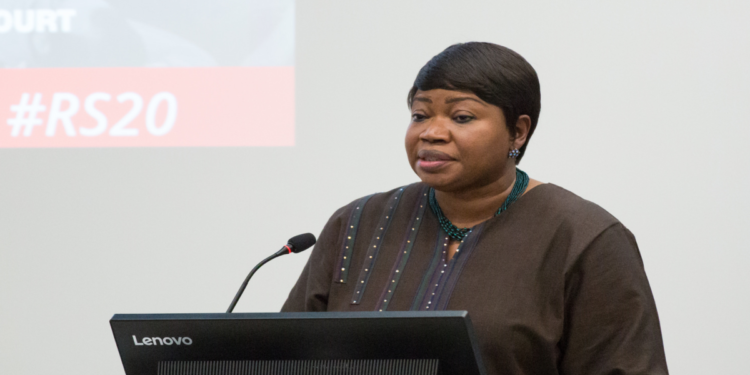By Thomas Verfuss
ICC Prosecutor Fatou Bensouda wants the court’s Appeals Chamber to rule that she is not obliged to reconsider her decision not to open an investigation into the Israeli attack on a humanitarian aid convoy for the Palestinians in Gaza (10 dead), as the Pre-Trial Chamber had ordered. The appeals judges would have to rule on a matter of principle: in how far is the ICC Prosecutor under judicial control when [s]he decides to do nothing.
At the Rome Conference in 1998, many mechanisms were put in place to control what the Prosecutor actually does. But there are few checks and balances in place when the Prosecutor does nothing (visible) – to the great frustration of many, like the war crimes victims in Georgia.
On 31 May 2010, in international waters, the Israeli military raided a Humanitarian Aid Flotilla trying to break the blockade of the Gaza Strip with humanitarian aid and construction material. Nine activists were killed on the unarmed ship Mavi Marmara, dozens were injured, one of whom died of his wounds later.
The Mavi Marmara is registered in the Comoros. The government of that African state referred the situation to the ICC Prosecutor in 2013. Bensouda concluded in 2014 that there were “reasonable ground to believe” that war crimes were committed on the vessel, but that they were not of “sufficient gravity”. She decided not to open a formal investigation. Human rights activists criticized the decision, suggesting the ICC Prosecutor did not want to go after Israel because it has a powerful friend, the United States of America.
In 2015, judges of the Pre-Trial Chamber asked the Prosecutor to reconsider her decision not to investigate. She asked the Appeals Chamber to quash that obligation, in vain. In 2017, after a new analysis of facts and law, she took the “final decision” not to open an investigation, for lack of gravity. “I want to be clear, however, that I fully recognise the impact of the alleged crimes on the victims and their families and my conclusion does not excuse any crimes which may have been perpetrated in connection with the Mavi Marmara incident”, the Prosecutor added.
On November 15th, 2018 the Pre-Trial Chamber, at the request of the government of the Comoros, decided to order the Prosecutor to review her “final decision” once again. On November 21st, she asked for leave to appeal certain points of principle: Must the Prosecutor’s “reconsideration be conducted on the basis of her own appreciation of the law and facts, or those of the Pre-Trial Chamber?”. She also makes a point of “judicial economy” and lack of resources: “These factors potentially determine both the duration of the proceedings and their effectiveness in achieving the objectives for which they were established.”
National legal systems have strong safeguards against prosecutorial non-activity. In The Netherlands, victims can ask an appeals court to order the prosecutor to prosecute. If the judges so decide, the public prosecutor’s office has no choice but to investigate and prosecute. In Germany, a prosecutor even commits a crime himself if he has evidence of a crime and chooses not to prosecute.
A couple of years ago, during an ICC stocktaking conference in Berlin, Journalists For Justice asked a German government official working on ICC matters why no such remedy for victims was available in the Rome Statute system. He said that, taking into account all the countries the ICC has jurisdiction for, there would just be too many requests to deal with for the court.
The issue of control by the judges over the work of the Prosecutor was one of the hot issues at the Rome Conference, as delegates from some countries were used to judges supervising all the investigative work or even conducting it themselves. The result was the rather weak language of article 53, 3. (a): “At the request of the State making a referral under article 14 or the Security Council under article 13, paragraph (b), the Pre-Trial Chamber may review a decision of the Prosecutor under paragraph 1 or 2 not to proceed and may request the Prosecutor to reconsider that decision.” An Appeals Chamber ruling on this matter may clarify how far the judicial oversight of prosecutorial non-action goes.
Prosecutorial action, to the contrary, has been subjected to control: [s]he cannot open an investigation proprio motu (of his or her own initiative) without the authorization of the judges of the Pre-Trial Chamber. Some negotiators in Rome were afraid that an independent Prosecutor from a developing country might go far in investigating western leaders. They had in mind how developing countries had “discovered” their majority (and thus power) in the United Nations General Assembly in the 1970s. And as the ICC Prosecutor was to be democratically elected by the Assembly of States Parties to the Rome Statute, some thought there had to be strong checks if the Prosecutor does decide to take action.







